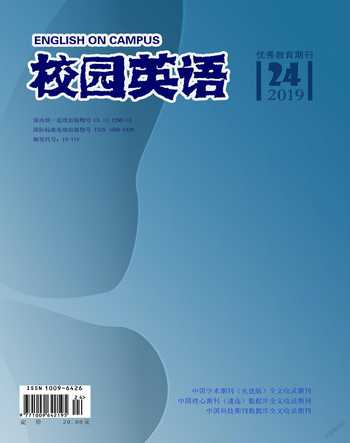A Study of Personality and Destiny of the Monster in Frankenstein from the Perspective of Psychoanalysis
安萌 管雪芳
In Frankenstein, Mary Shelley describes the experiences and experiences in the life of the monster. During the period of romanticism with strict moral principles, the monster as a new species had no place to vent their emotions, which was tantamount to spiritual torture. The monster was originally a manifestation of Frankenstein’s id instinct desire. When it developed into an independent individual, it had a personality structure. The purpose of this chapter is to analyze the monster’s emotional change process through the personality structure theory of “id”, “ego” and “superego”, and try to understand the monster’s emotional depression and choice when facing emotional confusion.
After the birth of the monster, the first thing he solved was “to find some berries hanging on trees or falling on the ground to starve, drink some water by the stream, and then fall to the ground and fall asleep”. When he woke up, he found a large sleeveless coat wrapped under a big tree to protect him from the cold. After the problem of food and clothing was solved, living became the most difficult problem before the monster. “Fortunately, he found a wooden hut on a high slope. Although the house was very short and the monster could barely sit upright inside, the hut was covered with rain and snow, and the ground was dry. It was already a wonderful dwelling for the monster.”
Although the newborn monster is already an adult, but the mind is like a baby, only knows the physiological needs of eating, drinking and sleeping. At this time, the monster only has the consciousness of the ego thinking, and has no right and wrong idea at all. Later, the monster also showed his desire for the opposite sex and his desire for revenge. His heart swelled with joy as he took William by the throat and watched the young life suffocate. He was fascinated by the picture of the woman in the child, but hatred came back to him in a moment because he would never have it. Thus, frustrated lust instantly turns into destructive anger.
After the monster has solved the basic needs of survival, it produces a higher level of spiritual needs, that is, the desire to be loved and a sense of belonging. He naively thought that by learning human language and understanding human culture, he could be accepted by human beings. Therefore, in order to be accepted by the Felix family, the monsters not only abandoned the habit of stealing food, but also helped them to work when they saw that they were unable to do anything because of poverty, so the monsters used superego restraint to guide the desire of the id and began to have ego.
Even good old people can’t accept a monster sleeping on the side of the bed. He was even accidentally injured when he was kind enough to rescue the girl from drowning. An important reason why his contradiction with Frankenstein has been deepening and he has been unable to reach an understanding is that human society can’t identify with the existence of an alien. Frankenstein will not think and feel the pain of monsters in an unknown way, and vice versa. Human indifference accumulates his anger. In the process of confronting human beings, monsters realize their existence as another “class”. The ego no longer uses the morality of human society to suppress its own ego desire, no longer desires to enter human society, but through constant crime and human beings completely demarcate the boundaries. He wants a companion to build a kingdom of his own, and the ego can respond to the ego according to the different “realistic principles” without abiding by the rules of the game of human society.
The superego of monster is mainly reflected in two aspects: punishment and self-punishment. “Punishment” means that Victor Frankenstein’s unorthodox scientific experiment challenging God’s power to create human rights will be punished, and the direct perpetrator of this punishment is the monster, which is manifested in a series of deliberate murders of the hero’s relatives and family members. The superego profoundly revenges the cold, selfish and narrow-minded people like Victor Frankenstein. “Self-punishment” means that while “superego” punishes Frankenstein, it also makes the monster’s heart suffer. “My pain is worse than yours - regret has been stabbing my heart all the time, only death can ever heal my wound.”
【作者簡介】安萌(1996.12-),女,汉族,山东青岛人,山东女子学院;管雪芳(1997.02-),女,汉族,山东威海人,山东女子学院。

